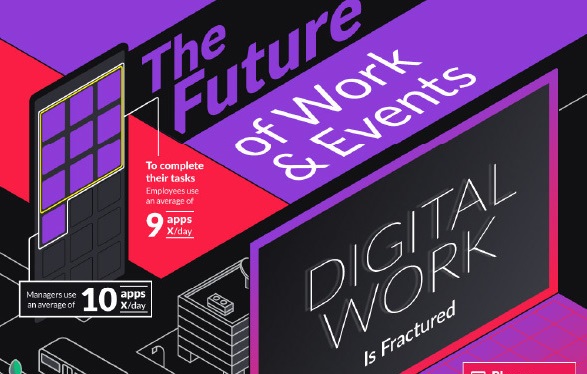COVID marked a change to the global landscape in ways that will never be reversed. While some things, such as lockdowns, have slowly been phased out as they represent an annoyance and negative to people’s lives. Other things, such as remote work, were kept around as the positive and utility were realized. Let’s discuss remote work and the need for building digital workplaces below.
Issues With Remote Work
Remote work has been a practical and cost effective alternative to many new and old businesses alike, but for new startups, learning to build a business to keep the negatives of remote work down are essential. The primary problem that new startups and businesses have to consider is digital fatigue.
While there are other factors of importance, such as the lack of efficiency that comes from remote workers having to constantly shift through a bunch of programs and apps, the primary annoyance to remote workers today is digital fatigue. Digital fatigue basically means that the way remote work currently operates really tires out employees.
Digital Meetings are Exhausting
This happens for a few key reasons. The first being the unnecessary state of digital meetings that exist today. 83% of remote employees spend up to a third of their work week entering and listening to digital meetings. This is an average of 11 minutes of waiting for the meeting to start alone for the average employee and 16 minutes for any sort of executive.
On top of the starting time, 71% of remote employees waste time every week on a canceled or unnecessary meeting. 56% of these employees think these meetings consistently go on too long and wish they spent less time in them. This makes sense when considering that in digital and physical meetings alike, most participants will not contribute anything around half the time.
On top of all of these digital meetings, there are some much harder to avoid side effects to working online at large. Some effects are obvious, people are much less likely to move around and stay mobile when working from home, they’re also going to have more misunderstanding with coworkers and supervisors alike due to the digital communication, although some are less obvious.
Anxiety in Remote Work
The social anxiety produced by virtual work is one of the less obvious factors. The close-up perspective of video calls on someone’s face makes harder to read the other person’s emotions. This and increases feelings of anxiety and observation. This effect is only worsened by the fact that most video calls reflect the person’s face back at them, again only increasing the feeling of being observed and anxiety.
Looking at all these factors comprehensively, it makes sense that remote workers are experiencing some version of digital fatigue. Still, what are upcoming businesses meant to do? There are less and more obvious ways. For instance, keeping meetings to a minimum, promoting movement at home, and trying to reduce workplace anxiety.
Others are promoting more inventive and experimental methods though. Companies are building digital workplaces that even go as far as to correlate with real locations. These workplaces would have floors, rooms, security access. That would more comprehensively bring a lot of the functions of a remote worker together. Most importantly, it would work to reduce digital anxiety.
In Conclusion
This may be a solution more akin to some of the tech-startups that exist today. It’s hard to say definitively what the best course of action for each new business is. If anything, the problem of digital anxiety should attempt to be addressed.
Brian Wallace is a Columnist at Grit Daily. He is an entrepreneur, writer, and podcast host. He is the Founder and President of NowSourcing and has been featured in Forbes, TIME, and The New York Times. Brian previously wrote for Mashable and currently writes for Hacker Noon, CMSWire, Business 2 Community, and more. His Next Action podcast features entrepreneurs trying to get to the next level. Brian also hosts #LinkedInLocal events all over the country, promoting the use of LinkedIn among professionals wanting to grow their careers.
Credit: Source link


Comments are closed.